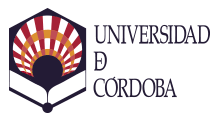THE THEATRE OF THE OPPRESED AND OTHER DRAMA TECHNIQUES TO IMPROVE SPEAKING IN THE EFL CLASSROOM
English Teachers try to look for the best alternatives to contribute to significant learning in the EFL context. In this process, regarding the development of Speaking, the goal is to discover how to get real communication in English to take place. With that objective, our research intended to explore the effectiveness of implementing drama and theatre techniques since they can make the learning process more active, exciting, interesting, communicative and contextual through the incorporation of the body into these shared experiences to enhance students’ speaking skills. The study’s theoretical framework founded its approach on the postulates of the constructive process from Paulo Freire’s Pedagogy of the oppressed linked to the drama techniques described by Augusto Boal, during the 1960s, in his Theatre of the oppressed. The appropriateness of such approach justifies itself on the basis of the development of kinesthetic intelligence as explained by Gardner and confirmed by contemporary neuroscience. A method based on design research was implemented for the negotiation of the classroom experiences, and the qualitative data was collected through the use of participant observation, journals, interviews, and focus groups that allowed us to reflect on the perceptions, experiences and motivation of students involved in the experiment. As expected, most learners felt empowered and highly motivated to participate both in the negotiation and construction of the scripts and in the process of debating and negotiating the outcome of their plays, while improving their use of technological tools to find the vocabulary needed to participate in the negotiations.










